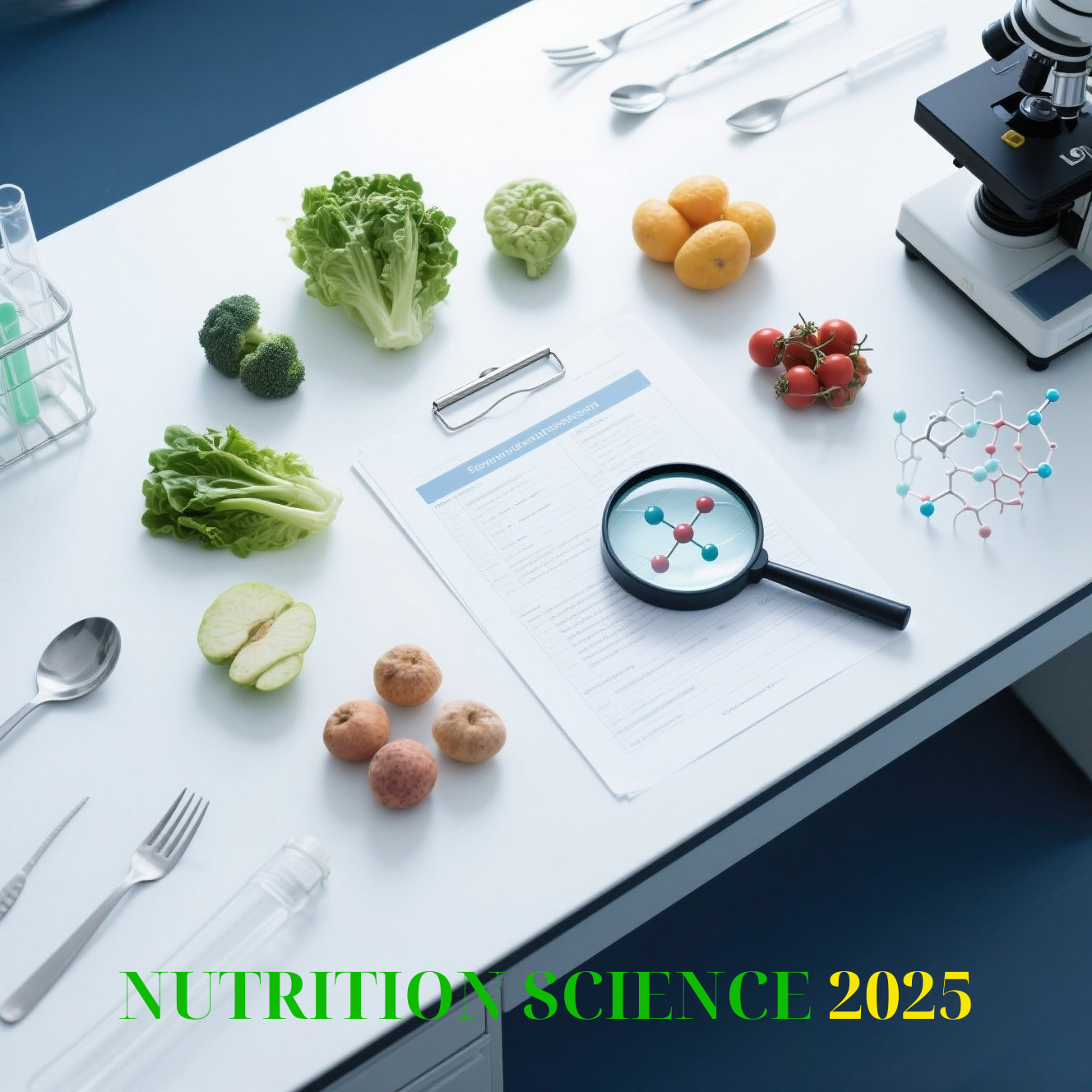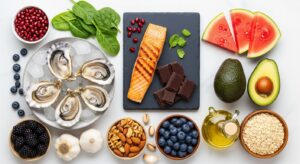What Nutrition Research Really Shows About Healthy Eating
The Science of Nutrition: What Research Really Says About Healthy Eating in 2025
Last updated: August 2025
We’ve all been there – standing in the grocery store aisle, overwhelmed by conflicting nutrition advice. One week, eggs are bad for you. The next, they’re a superfood. It’s enough to make anyone want to throw in the towel and reach for whatever tastes good.
But here’s the thing: nutrition science has come a long way in the past decade. We’re finally getting clearer answers about what actually works for long-term health, backed by solid research rather than food industry marketing or outdated guidelines from the 1970s.
Why Everything You Thought You Knew About Nutrition Might Be Wrong
For decades, we operated under some pretty shaky assumptions. The low-fat craze of the 1980s and 90s? Turns out it was based on incomplete data. A landmark 2017 study published in The Lancet, which followed over 135,000 people across 18 countries, found that people who ate the most carbohydrates had a 28% higher risk of death compared to those who ate the least.
Meanwhile, those who consumed higher amounts of fat – including saturated fat – actually had lower mortality rates. This doesn’t mean you should start chugging olive oil, but it does mean we need to rethink some fundamental beliefs about what constitutes healthy eating.
The Micronutrient Revolution: Why Vitamins and Minerals Matter More Than Calories
Here’s something that might surprise you: a 2019 study in the Journal of the American Medical Association found that nearly 95% of Americans don’t get enough vitamin D, and about 84% fall short on vitamin E. These aren’t just numbers on a blood test – these deficiencies directly impact how you feel and function every day.
Vitamin D isn’t just about bone health. Research from Harvard’s T.H. Chan School of Public Health shows it plays crucial roles in:
- Immune system regulation (think fewer colds and infections)
- Mood stability (low levels are linked to seasonal depression)
- Muscle function (deficiency can cause unexplained aches and weakness)
Magnesium is another big one. About 68% of Americans don’t get enough, according to USDA data. This mineral is involved in over 300 enzymatic reactions in your body, including:
- Sleep regulation (it helps activate the parasympathetic nervous system, which helps you wind down)
- Blood sugar control (deficiency is linked to insulin resistance)
- Heart rhythm (it helps regulate electrical impulses in the heart)
The practical takeaway? Focus on nutrient density rather than just calorie counting. A 100-calorie pack of cookies might fit your daily calorie budget, but it’s basically nutritional emptiness. Those same 100 calories from a handful of almonds provide vitamin E, magnesium, healthy fats, and fiber that actually help your body function better.
The Gut Microbiome: Your Second Brain and Nutritional Command Center
This is where nutrition science gets really interesting. We now know that the trillions of bacteria living in your digestive system don’t just help break down food – they’re actively communicating with your brain, immune system, and hormones.
A groundbreaking 2022 study published in Nature Medicine tracked 1,000 people for two weeks and found that individuals with more diverse gut bacteria had:
- Better blood sugar control after meals
- Lower levels of inflammatory markers
- Improved mood scores
- More stable energy throughout the day
So how do you feed these beneficial bacteria? It’s not as complicated as supplement companies want you to believe:
Prebiotic foods (what good bacteria eat):
- Garlic and onions contain inulin, a fiber that specifically feeds beneficial bacteria
- Asparagus and Jerusalem artichokes are packed with oligofructose
- Green bananas have resistant starch that feeds butyrate-producing bacteria (butyrate helps repair your gut lining)
Fermented foods (direct sources of beneficial bacteria):
- Yogurt with live cultures (look for “contains live and active cultures” on the label)
- Sauerkraut and kimchi (but check that they’re unpasteurized)
- Kefir, which typically contains more diverse strains than yogurt
Protein: Beyond the Gym Bro Science
The protein conversation has been dominated by bodybuilding culture for too long. Yes, protein is important for muscle building, but recent research shows it’s crucial for way more than that.
A 2023 meta-analysis in the American Journal of Clinical Nutrition found that adequate protein intake is essential for:
- Satiety: Protein triggers the release of hormones like GLP-1 and peptide YY that help you feel full
- Metabolic health: It has the highest thermic effect of all macronutrients, meaning you burn more calories digesting it
- Bone health: Contrary to old beliefs, adequate protein actually supports bone density when combined with sufficient calcium
- Immune function: Antibodies are made of protein, so deficiency directly weakens your immune response
But here’s the key insight from recent research: timing and distribution matter more than total amount. A 2021 study in The Journal of Nutrition found that eating 25-30 grams of protein at each meal was more effective for muscle protein synthesis than eating the same total amount concentrated in one or two meals.
This means having eggs at breakfast, chicken in your lunch salad, and salmon for dinner works better than having a tiny breakfast and a huge protein-loaded dinner.
The Inflammation Connection: How Food Affects Your Body’s Stress Response
Chronic inflammation is like having a low-grade fever all the time – it wears down your system and contributes to everything from joint pain to heart disease to depression.
The good news? A 2020 study in the Journal of the American College of Cardiology found that following an anti-inflammatory eating pattern reduced inflammatory markers by 18% in just 12 weeks.
Pro-inflammatory foods to limit:
- Ultra-processed foods (they often contain advanced glycation end products, or AGEs, which trigger inflammatory pathways)
- Refined sugars (they cause rapid spikes in blood glucose, which promotes inflammatory cytokine production)
- Trans fats (still found in some processed foods despite FDA restrictions)
Anti-inflammatory powerhouses:
- Fatty fish: Salmon, mackerel, and sardines provide EPA and DHA, omega-3 fatty acids that directly counter inflammatory processes
- Berries: Rich in anthocyanins, compounds that inhibit pro-inflammatory enzymes
- Leafy greens: High in nitrates, which get converted to nitric oxide and help reduce vascular inflammation
- Turmeric: Contains curcumin, which research shows can be as effective as some anti-inflammatory medications for certain conditions
Blood Sugar: The Overlooked Key to Energy and Weight Management
Even if you’re not diabetic, your blood sugar patterns affect how you feel and function every day. A 2022 study published in Nature Metabolism used continuous glucose monitors on healthy individuals and found some eye-opening results.
People who experienced large blood sugar spikes after meals (even within “normal” ranges) reported:
- More afternoon energy crashes
- Increased cravings for sugary foods
- Poorer sleep quality
- More mood swings
The solution isn’t avoiding carbs entirely – it’s eating them strategically:
The “food order” hack: A 2020 study in Diabetes Care found that eating protein and vegetables before carbohydrates at the same meal reduced post-meal blood sugar spikes by 29%. This simple change requires no special foods or restrictions.
Pair carbs with fiber and protein: Having an apple with almond butter instead of just an apple slows sugar absorption and prevents those energy roller coasters.
Time your carbs: Your body handles carbohydrates better earlier in the day when insulin sensitivity is naturally higher.
Hydration: Beyond Just Drinking Water
We know we need water, but recent research reveals that optimal hydration is more nuanced than just chugging eight glasses a day.
A 2021 study in the European Journal of Clinical Nutrition found that hydration needs vary dramatically based on:
- Climate and altitude
- Physical activity levels
- Overall health status
- Even the types of foods you eat
Hydration enhancers:
- Electrolytes: Sodium, potassium, and magnesium help your body actually use the water you drink rather than just flushing it through
- Water-rich foods: Cucumbers, watermelon, and soup contribute to hydration while providing nutrients
- Herbal teas: Count toward fluid intake while providing beneficial compounds like antioxidants
Signs you might be chronically dehydrated (even if you don’t feel thirsty):
- Afternoon fatigue that coffee doesn’t fix
- Headaches, especially in the afternoon
- Dry skin despite using moisturizer
- Constipation
- Difficulty concentrating
Putting It All Together: A Practical Framework
After reviewing thousands of nutrition studies, here’s what consistently emerges as the foundation of healthy eating:
The 80/20 principle: Focus on getting it right most of the time rather than pursuing perfection. Research shows that people who allow flexibility in their eating patterns are more likely to maintain healthy habits long-term.
Prioritize whole foods: A 2023 systematic review found that diets high in minimally processed foods were associated with lower rates of chronic disease, regardless of whether they were low-carb, Mediterranean, or plant-based.
Listen to your body: New research on interoception (your body’s internal awareness) suggests that people who pay attention to hunger, fullness, and energy cues make better food choices naturally.
The Bottom Line
Nutrition doesn’t have to be complicated, but it should be informed by actual science rather than trends or marketing. The research is clear: focus on nutrient-dense whole foods, support your gut health, manage inflammation, and pay attention to how different foods make you feel.
Your body is incredibly smart – it’s been keeping humans alive for thousands of years before we had nutrition labels or calorie counting apps. The goal isn’t to override that wisdom but to support it with good information and quality ingredients.
Remember, the best diet is the one you can stick with long-term. Use this science-backed information as a guide, but don’t let perfect be the enemy of good. Small, consistent changes based on solid research will always beat dramatic overhauls based on the latest health fad.
Sources: This article references peer-reviewed research from The Lancet, Journal of the American Medical Association, Nature Medicine, American Journal of Clinical Nutrition, Journal of the American College of Cardiology, Nature Metabolism, Diabetes Care, European Journal of Clinical Nutrition, and Harvard T.H. Chan School of Public Health, among others. Always consult with healthcare providers before making significant dietary changes, especially if you have underlying health conditions.














Post Comment